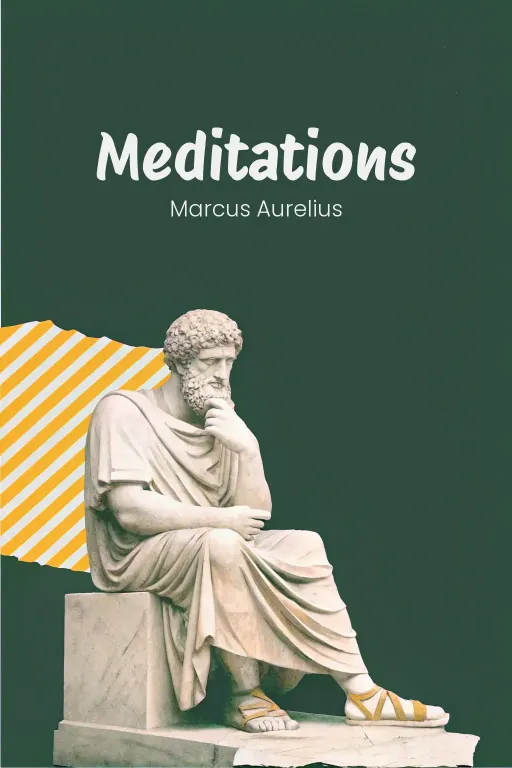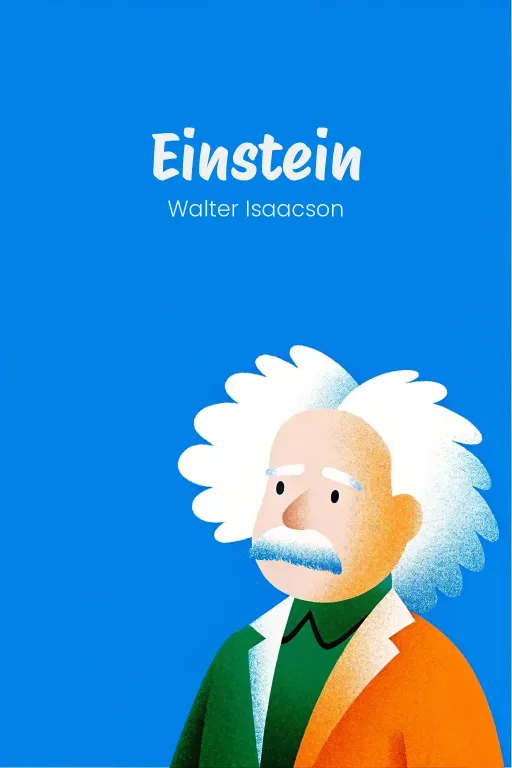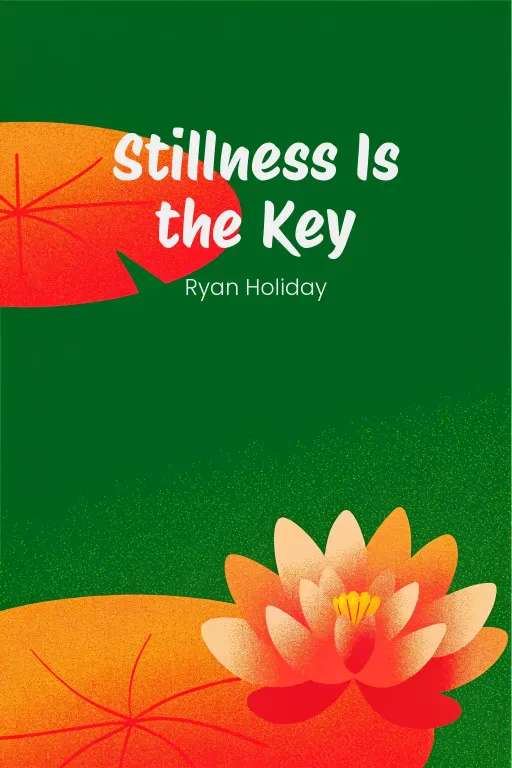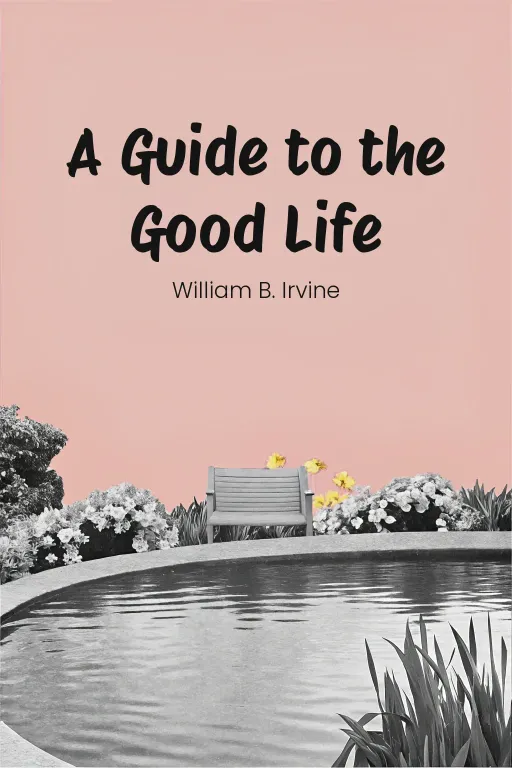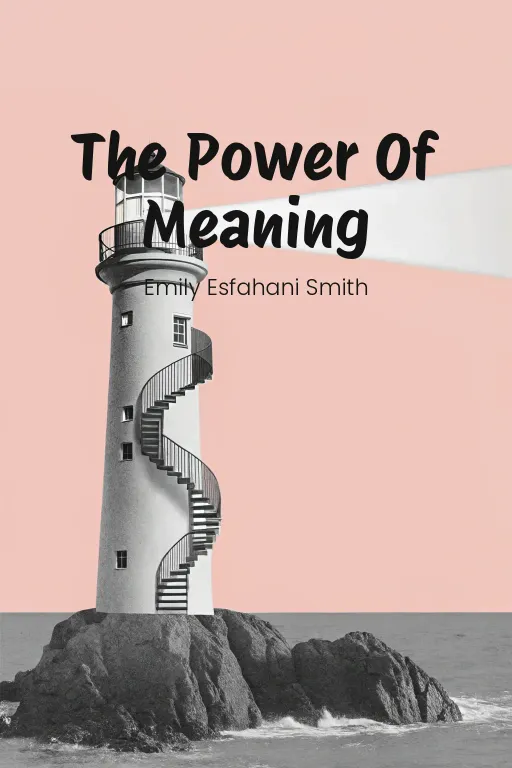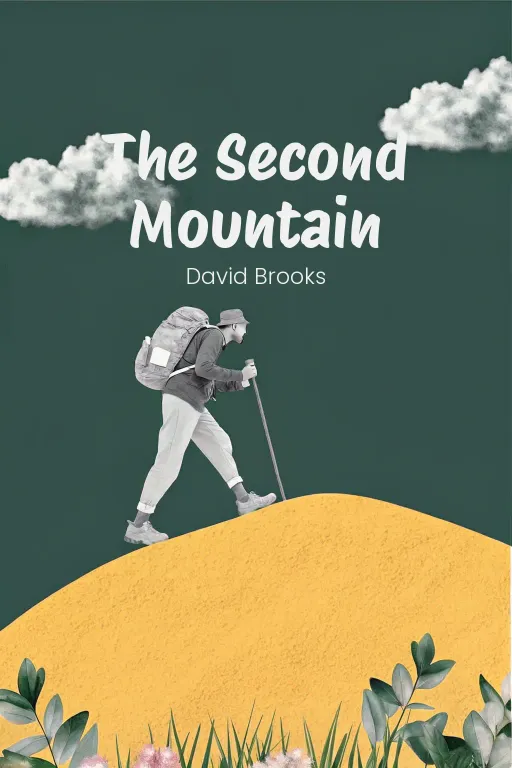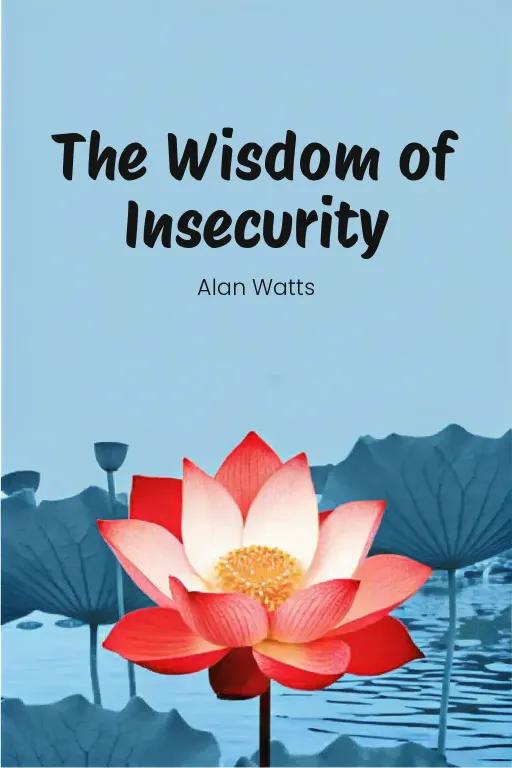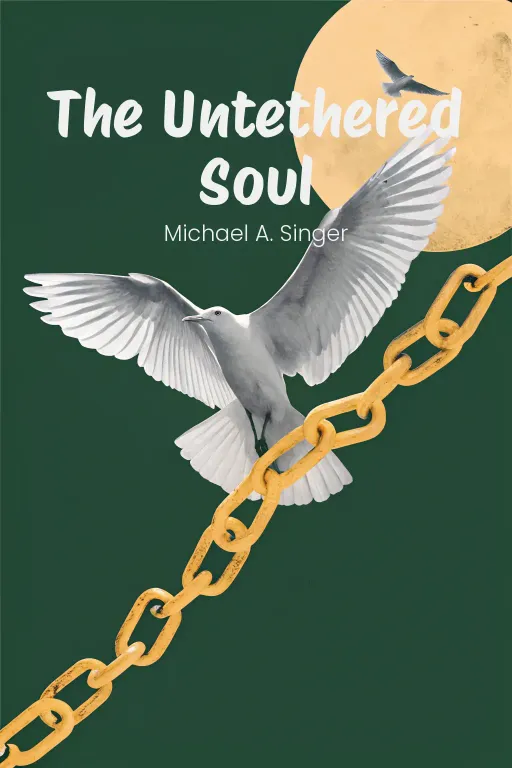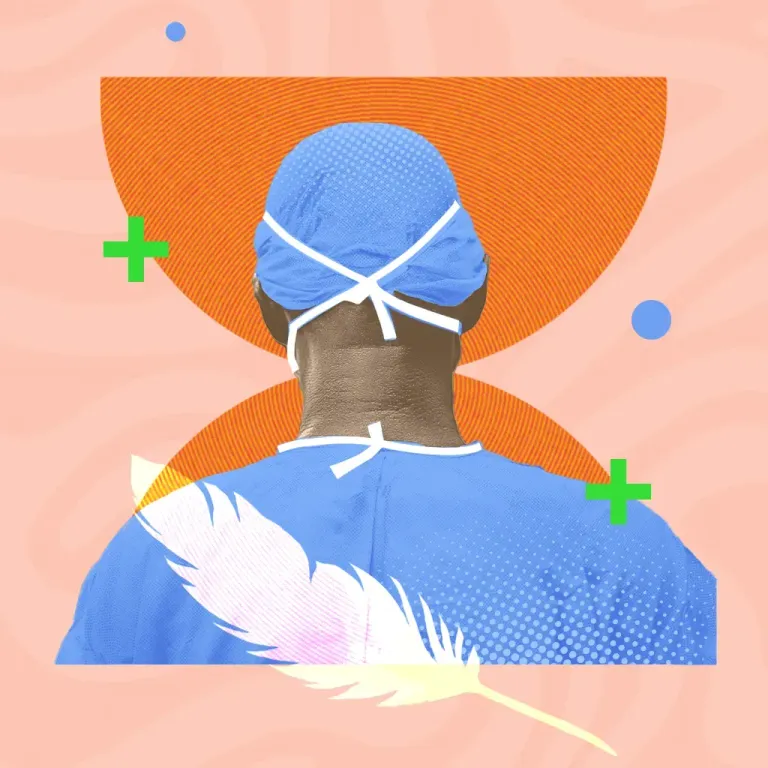
Find Meaning When Facing the End
Podcast by Beta You with Alex and Michelle
Finding hope in the face of insurmountable odds
Find Meaning When Facing the End
Part 1
Alex: Hey everyone, welcome back! Today, we're diving into a story that's both incredibly moving and profoundly thought-provoking. It's a story about life, death, and everything in between. Michelle: Ah, because nothing brightens up a Tuesday morning like a good, hard look at our own mortality, right? Alex: Exactly, Michelle. But honestly, it's a conversation we all need to have, sooner or later. We're talking about When Breath Becomes Air by Dr. Paul Kalanithi. He was only 36, at the peak of his career as a brilliant neurosurgeon, when he was diagnosed with stage IV lung cancer. Michelle: So, he goes from being the guy who fixes brains to trying to, well, fix his own situation. A bit of an ironic twist, wouldn’t you say? Alex: Absolutely. This memoir is all about Paul's incredible journey, grappling with mortality, identity, love, and that fundamental search for purpose, all while facing a terminal illness head-on. It's raw, it's honest, and it's so incredibly human. Michelle: So, basically, we're dissecting the human condition today? That sounds like a light afternoon read. Alex: More or less. We’re going to unpack three key themes from Paul's story: first, how facing death completely changed his perspective on what gives life meaning; second, how his illness reshaped his sense of self and his relationships; and finally, how his words, even after his death, became his lasting legacy. Michelle: Okay, that is heavy. But I guess if we’re going to wrestle with these big questions, who better to do it with than a neurosurgeon who also happens to be a bit of a philosopher? Alex: Couldn't agree more. So, let's jump into the depth and brilliance of Paul's story together, shall we?
Mortality and the Meaning of Life
Part 2
Alex: Okay, Michelle, picking up where we left off, let's dive right into Paul's initial, and truly pivotal, realization—his own mortality. We all intellectually “know” life is finite, right? But how does that knowledge “really” hit you when it stops being an abstract idea and becomes intensely personal? Michelle: Right. It's a universal truth, in theory. We're all on a one-way trip. But when someone like Paul, who spends his days literally saving lives, is confronted with his own CT scan showing tumors, that's a reality check most of us can't even fathom, you know? It's suddenly not just "someone else's problem" anymore. Alex: Precisely. And that's what makes his perspective so impactful. As a neurosurgeon, he faced mortality every single day—deciding who to operate on, who might survive, carefully weighing extending life against preserving their dignity. But the second he becomes the patient, that professional detachment just vanishes. He writes about how the future he'd imagined, which was about to begin, just evaporated. Michelle: So, what does he do when his doctor's armor cracks? Does he revert to cold, clinical thinking, or embrace his philosophical, human side? Alex: A bit of both, actually. That's the fascinating part. On one hand, he tackles his diagnosis with the precision of someone trained to understand cancer—decoding his scans, analyzing his options. But there's also this deeply personal thread woven throughout. He starts asking, "If I only have a year left, what truly matters? How should I spend it?" Michelle: Hmm. And the answers to those questions hinge on whether you see life as a series of accomplishments or moments filled with meaning, don't they? Did Paul feel he needed to "achieve" something before he died, or did he focus on finding peace? Alex: It evolves. Initially, he's very much tied to his identity as a neurosurgeon—this summit he's been climbing for a decade. He even pushes himself to return to work during chemo, despite the toll it takes. But as his illness progresses, something shifts. He starts valuing relationships and experiences over achievements. Michelle: It's ironic, though, isn't it? This guy spends years cutting into brains—arguably the seat of identity—trying to save lives. Then, facing his own death, he realizes it's not the brain or the titles that define you, but your heart. Those connections. Alex: Beautifully put, Michelle. He grapples with that duality constantly, shifting from "What do I want to do with my time?" to "Who do I want to be?" That shift is powerful because facing your mortality strips away all the noise. It forces you to confront your core self. Michelle: So, with all this staring-death-in-the-face, where does he find clarity? Prayer? Meditation? A morbidly existential Spotify playlist? Alex: He turns to literature, actually. He wasn't just a brain surgeon; he had a master's in English lit. Books were always central to his life. He draws on them to make sense of his situation. T.S. Eliot's Four Quartets, for instance, becomes a cornerstone for his reflections on time, mortality, and meaning. Michelle: Quotes poetry while battling cancer? That's…intimidatingly cerebral. Alex: I think it's less about being cerebral and more about needing tools to articulate experiences that are almost too big, too painful, for words. Literature, for him, isn't just a refuge—it's a way to wrestle with the ineffable. In Eliot's work, he finds insights about how time doesn't just move forward or backward; it layers itself. That helps Paul see life not as a linear path, but as a collection of experiences that hold meaning in themselves. Michelle: Okay, so literature helps him philosophically. But what about practical decisions? His memoir isn't just abstract thoughts—it's rooted in hard realities, like how to spend his limited time. Alex: Exactly. And this is where his professional life meets his personal journey. For years, he faced impossible decisions in the OR—cases where survival meant severe deficits, and families had to decide between extending life and preserving dignity. One case, a young boy with a brain tumor, shaped his understanding of what it means to live meaningfully, even briefly. So, when he faces the question of aggressive treatment versus letting nature run its course, he approaches it with incredible thoughtfulness. Michelle: And that's the million dollar question, right? How much is too much? Yet, even with all that thoughtfulness, there's no perfect answer. Does he ever really resolve the tension between fighting to live and learning to let go? Alex: Not entirely, and that's kind of the point. Life—and death—is messy. He acknowledges this when considering a risky new treatment, writing, "Should I allow treatment to extend the mechanics of my existence, or should I let nature take its course?" Ultimately, he focuses on maximizing the quality of his time, not just the quantity. Michelle: Which naturally brings us to the people in his life. Because even if you're a stoic philosopher, facing death becomes a shared experience when you have loved ones. His wife, Lucy, seems crucial in helping him navigate this. Alex: Absolutely. Their relationship is one of the most powerful aspects of the memoir. Early on in his diagnosis, Lucy asks him, "What stands out most to you—what's the hardest part?" And he says, "Leaving you." How simple, yet profound, is that? It reminds us that it's not about accolades or achievements. It's about love, about connection. Michelle: It's oddly comforting, isn't it? That when facing something as enormous as mortality, the answer isn't some grand declaration—it's just, "I don't want to leave the people I love." Alex: Yes. And that sentiment evolves even further. Paul and Lucy make the courageous decision to have a child, knowing he won't see her grow up. Their daughter, Cady, becomes this incredible symbol of joy and continuity in the face of death. Michelle: Wait, he's writing this memoir, battling cancer, and embracing fatherhood? All while knowing time is short? That's intensely poignant. Alex: It is, but that's the remarkable thing about his journey. Even with death looming, he finds moments of beauty—in parenting, in love, in simply being. His final reflection sums it up perfectly: he doesn't focus on what he's losing, but on what he's gained, writing, "When you come to one's end, the ability to love remains." Michelle: That's…that's something to strive for. It really puts things into perspective, doesn't it?
Transformation of Identity and Relationships
Part 3
Alex: So, that exploration naturally leads us to how these realizations—this really deep confrontation with mortality—impact Paul's relationships and how he understands his own identity. It's not just about, you know, thinking about death, right? It's about understanding how it reshapes who you are and the roles you play in life. Michelle: Ah, the big existential pivot—how facing death unravels the carefully constructed life you've built. So, am I right in thinking this is where Paul’s transformation from “Dr. Paul Kalanithi, brain-whisperer extraordinaire” to just…“Paul, husband, father, and cancer patient” really takes center stage? Alex: Exactly! That transition—from, you know, neurosurgeon at the top of his game to a vulnerable patient with obviously no control—is really fundamental to the story. Paul actually describes this shift as both deeply humbling and disorienting, surprisingly. He goes from making life-and-death choices in the OR to sitting in a hospital bed, deciding whether to go through chemo again or to just focus on, you know, whatever energy he has left. Michelle: I mean, that’s gotta mess with your head, seriously. One day, you’re holding the scalpel, and the next, you’re just another body on the CT scanner. How does someone even begin to reconcile that kind of identity shift, really? Alex: It’s definitely not easy. But what really stands out is Paul’s willingness to confront that vulnerability head-on. He writes about how doctors are taught to maintain this professional detachment, focusing on the science and the procedures, obviously not the person. But when the roles are reversed, he says, “Patients are no longer problems to solve. The physician’s detachment [is] no longer applicable.” Now he's experiencing the helplessness, and he admits that no amount of medical training can shield you from the raw, human reality of being a patient. Michelle: So, he's unlearning the God complex they probably instill in you in med school, I guess—that sense of control over life and death? Alex: In a way, yes. It really brings incredible humility to his reflections. He talks about how, as a surgeon, his identity has been tightly wrapped up in his ability to save lives. But what happens when that ability is taken away? Who are you without your titles, skills, achievements? That’s the kind of self-examination Paul is forced to grapple with. Michelle: And it’s not just personal identity, right? I mean, cancer doesn’t exist in a bubble. What about his marriage? How does Lucy navigate all these shifting identities alongside him? Alex: That’s such a crucial part of the story. At first, their relationship suffers under all the weight of Paul’s declining health. She wants him to open up and share the burden, but he retreats inward. She even confronts him, asking, “Why are you shutting me out?” And you can really see how the stress of it all creates cracks in their connection. Michelle: Which, let’s be honest, feels really painfully realistic. He’s trying to protect her by internalizing everything, and she's just trying to, yeah, get through it, get through to him. Alex: Exactly. But it’s their decision to face this together that transforms their marriage. Therapy plays a big role—they start having these really honest conversations about, you know, their fears, their hopes, and even their grief about the future they won’t get to share. And there's this really beautiful moment where Lucy asks him what he’s most scared of, and he replies, "Leaving you." Michelle: Wow. That's the kind of line that just makes you stop and think, isn’t it? Cuts through all the noise and gets right to the heart of what really matters. Alex: It really does. And that vulnerability—opening up, really being raw with each other—deepens their bond in ways Paul never expected. Lucy steps into this incredible dual role—not just as his wife but also as his caregiver. And she does it with such grace. Paul reflects on it, saying that her presence became a source of support and calm for him, even as things got much harder. Michelle: Can we just talk about how rare that kind of resilience is in a relationship? I mean, most couples stress over who does the dishes, and here they are navigating chemo and existential dread. Alex: It’s extraordinary. And I think it's because they stop focusing on the future and start cherishing the present—finding joy in small, everyday moments. Like, you know, laughing over his hospital socks or holding hands during appointments. It's a real shift in perspective, about grounding themselves in the now instead of dwelling on what's being taken away. Michelle: Okay, but speaking of lose-lose decisions, let’s tackle the big one: choosing to have a child, even when you know time’s running out. Aren’t most people in his position thinking, “Why bring a kid into such uncertainty?” Alex: Fair question, and Paul wrestles with exactly that. Initially, he's hesitant. He even asks Lucy, “Don’t you think it would be cruel to bring a child into this situation?” But Lucy reframes it for him, and it’s along the lines of, “What’s so important isn’t the length of time but the depth of love we can give.” That really shifts his perspective. Michelle: So, in a way, it’s really less about extending his legacy and more about creating a tangible expression of love while he still can, right? Alex: Precisely. And Cady, their daughter, becomes this incredible symbol of hope and joy, even in the middle of all the pain. Paul describes holding her, hearing her laugh, and just feeling this overwhelming sense of gratitude. His time with her might have been brief, but it was deeply meaningful. Michelle: It’s almost paradoxical, right? Here’s a man whose life is being cut short, yet he finds some solace watching a new life begin. It’s this absurdly beautiful juxtaposition. Alex: Absolutely. That’s what makes Paul’s reflections so poignant. He writes that fatherhood helps him see life as not just something you accomplish or survive but something you share—moments filled with love that ripple outward, even after you’re gone. Michelle: So, the real twist isn’t just how Paul sees himself—it’s also how he connects to the world around him, especially with Lucy and Cady. He learns to let go of control and becomes more vulnerable, it seems. Alex: Exactly, and in doing so, he redefines what it means to live fully, even when life is passing. His journey shows that identity isn’t fixed; it keeps changing, shaped by the people we love and the challenges we face together.
Legacy and the Power of Storytelling
Part 4
Alex: These personal transformations really highlight the importance of legacy, our final core topic. It's kind of the culmination of everything Paul reflects on—how we leave our mark on the world, through our actions, our relationships, and, you know, in Paul's case, his storytelling. Michelle: So, legacy isn't about building some grand monument or winning some big prize, but about leaving a quieter, more personal imprint on the lives we touch? Alex: Exactly. And with Paul, legacy and storytelling become totally connected. His memoir wasn't just about processing his experience; it was a conscious choice to make sure his voice would echo beyond his physical life. It’s this incredible decision to not only face his mortality but to create something lasting. Michelle: That's kind of poetic, isn't it? Turning the end of your life into something that outlives you. But how does writing go from just being a way to express yourself to becoming a real legacy? Alex: There’s this scene in the book, one of the most vivid for me, where Paul is sitting in his armchair, wrapped in a blanket. He’s exhausted, barely able to stay upright, but he’s pushing through to finish the manuscript. That scene really shows the urgency and purpose driving him—this commitment to giving the world a universal story, not just a chronicle of his illness. His words become more than just a personal account; they become a bridge, connecting his individual experience with broader human truths. Michelle: Okay, so he's writing while battling terminal cancer. That alone is a Herculean effort. But it's not just about him, right? It's also for Lucy, for their daughter, for… well, for the rest of us? Alex: Absolutely. For Cady, it’s his way of leaving behind a part of himself, something she can grow up with. Lucy mentions in the epilogue how the book was meant to show Cady who her father was—not just the doctor or the patient, but the thinker, the dreamer, the man who found joy even in the face of suffering. And for readers, it's a chance to reflect on our own lives through his. Michelle: So, whether it's his daughter reading it ten years from now or some stranger cracking it open today, the message is the same: life is short, but the impact you leave can ripple outward. Alex: Exactly. And it’s amazing how Lucy continues that legacy through her own storytelling. The epilogue isn't just a postscript—it's an extension of Paul's voice. She talks about their shared moments, about raising Cady with Paul’s values in mind, and how his essence continues to influence her life. Michelle: So Lucy basically becomes a storyteller herself, taking the baton and running with it, huh? Alex: Yeah, she does. Her role is so important, because she doesn’t let Paul’s story end with the final page of the book. She dedicates herself to making sure Cady knows her dad—not just through his words but through the memories and values she keeps alive. She transforms their shared loss into something deeply meaningful, weaving Paul’s legacy into the fabric of their lives. Michelle: That's got to be as much a labor of love as the book itself. I mean, every milestone for Cady—her first steps, her first words—those are all bittersweet reminders of what Paul is missing. Alex: They are. Lucy talks about that in the epilogue. But she also says how those moments offer joy because they carry pieces of Paul forward. For her, parenting isn’t just about looking back and mourning—it’s about living in a way that honors his impact. Michelle: It's like finding a way to keep someone alive, even when they're not there physically. But, let’s be real here, this whole idea of legacy sounds great in theory. Doesn't grief have a way of overshadowing even the best intentions? Alex: Of course. Grief is messy and relentless. But storytelling, for Lucy and for Paul, becomes a way of navigating that grief. It shifts the perspective—it’s not about erasing the pain but about transforming it into something that endures. Lucy calls it a way of “sharing his brightness,” which I think captures the essence of what a legacy “really” is. Michelle: So in that sense, his memoir—and the memories Lucy fosters—becomes a tool not just for Cady's understanding but for their own healing process too? Alex: Exactly. Through storytelling, they both—Paul through his memoir and Lucy through her reflections—turn that rawness of grief into resilience. It’s not just about remembrance; it’s about continuing to grow and live while carrying that person forward with you. Michelle: And then there’s another layer to how this impacts us, the readers. Paul’s not just talking to his family—his insights hit this universal nerve about how we think about mortality. Alex: Right. He uses storytelling to create a kind of shared intimacy. He reflects on things like fear, love, and purpose, in a way that’s deeply personal but also incredibly relatable. Like when he writes about the terror of leaving Lucy behind—that’s not just his fear. That’s a human fear, the knowledge that one day we all leave and are left in turn. Michelle: Yeah, I think that’s what grabs you about his writing. It’s not preachy or distant—it’s vulnerable. It’s like he’s saying, “This is what it's like to be in this moment of finality. Let’s sit with it together for a while.” Alex: Exactly. And that’s the power of storytelling. It breaks down barriers, creates empathy, and makes us feel seen. Paul doesn’t just write about dying—he writes about living with intention, even when you know the end is near. His voice lingers because it invites us to confront our own humanity. Michelle: So when we talk about legacy, we're not just talking about some abstract concept. It's as real as a father leaving behind a book for his daughter, or even a moment of connection between writer and reader. That ripple effect—man, it’s humbling. Alex: It is. And that’s why Paul’s journey resonates so deeply. His legacy isn’t just in his achievements or his identity as a neurosurgeon. It’s in the way he chose to live, to love, and to share his story. And through that—through Cady, through Lucy, through his readers—his impact continues, even now.
Conclusion
Part 5
Alex: Right, so, if we’re going to wrap up our discussion on “When Breath Becomes Air”, it’s more than just a memoir about facing death, wouldn't you agree? It's really a deep dive into what it means to truly live, how facing our mortality changes us, and the incredible importance of love, connection, and sharing our stories. Michelle: Exactly! And it’s not sugar-coated either, is it? It’s messy, complicated, and utterly authentic. Paul doesn’t just share his experiences; he pushes you to really question your own life and figure out what truly matters to you. It's a sort of mirror, right? Alex: Absolutely! It's a powerful lesson: it's not about how much time we're given, but how we spend the time we do have. How do we choose to find meaning, to love with everything we've got, and to leave behind something that matters? I think that's what he was grappling with. Michelle: Okay, so for everyone listening, here’s the million-dollar question to mull over: If your time was limited, what kind of mark would you want to leave on the world? Paul shows us it's not about being perfect or winning awards; it's about living with intention. Whatever that looks like for you. How would someone apply this to modern urban life? Alex: And on that note, let's leave everyone with Paul's powerful thought: “The ability to love remains.” Let's hold on to that as we make our way through life. Michelle: Until next time, everyone—live well, love deeply, and maybe don't quote quite as much T.S. Eliot as Paul did, okay? Alex: Yeah, maybe just a tad less Eliot. See you all next time!


